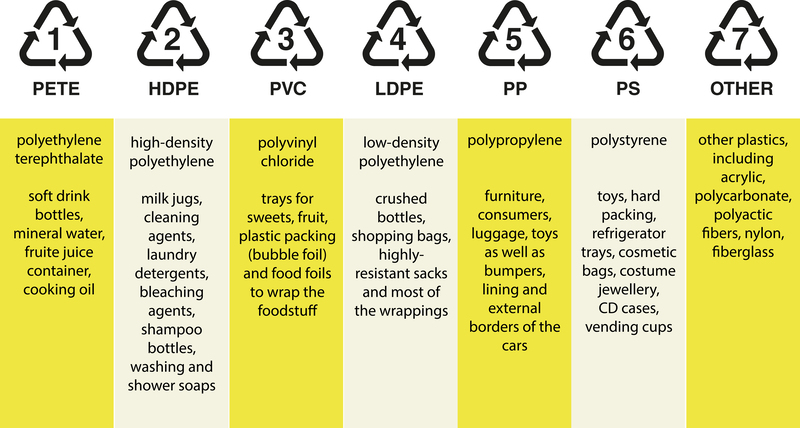Proven Steps for Effective Waste Reduction at Home
Posted on 25/08/2025
Proven Steps for Effective Waste Reduction at Home
Waste reduction at home is not just a trend--it's an essential strategy for protecting our planet and saving money. Every household generates waste, but with a few proven steps, you can dramatically decrease what you send to the landfill. In this comprehensive guide, we'll explore the most effective methods for home waste reduction, including practical tips, creative solutions, and easy daily habits you can adopt right away.

Why Waste Reduction at Home Matters
When you reduce household waste, you're lowering your environmental footprint and contributing to a healthier, more sustainable world. Landfills produce greenhouse gases, pollute water sources, and deplete natural resources. By making small yet powerful changes to our everyday routines, we can collectively make a significant impact.
Start With a Home Waste Audit
The first step to cutting waste at home is understanding what you throw away. Conducting a simple waste audit helps identify problem areas and opportunities for improvement.
How to Conduct a Home Waste Audit
- Save your trash for a week.
- Sort it into categories: food, plastics, paper, glass, metal, and others.
- Analyze which category produces the most waste.
- Identify single-use or unnecessary items you can avoid in the future.
This audit will guide your strategy for smart waste minimization at home.
Step 1: Embrace the "Reduce, Reuse, Recycle" Mindset
Reduce: Buy Only What You Need
Prioritize reducing waste at home by avoiding unnecessary purchases. When shopping:
- Plan meals and make a shopping list to avoid food waste.
- Choose products with minimal or recyclable packaging.
- Consider quality and longevity over convenience.
Reuse: Give Items a Second Life
Repurpose containers, jars, and clothing before discarding. Donate gently used goods to local charities or host a swap with friends and neighbors. For example:
- Turn glass jars into storage containers.
- Use old towels as cleaning rags.
- Upcycle furniture with a fresh coat of paint.
Recycle: Sort Appropriately
Understand your community's recycling rules. Rinse containers, flatten cardboard boxes, and keep recyclables free from food residue. This simple habit ensures your recycling efforts are effective and not contaminated.
Step 2: Smart Purchasing Choices for Less Waste
Choose Durable, Reusable Products
- Opt for stainless steel water bottles and coffee mugs.
- Buy cloth shopping and produce bags.
- Invest in glass or metal food containers instead of single-use plastics.
- Select rechargeable batteries for electronics.
By choosing reusable household goods, you minimize what ends up in the trash.
Buy in Bulk and Avoid Single-Use Packaging
- Purchase pantry staples in bulk using your own containers where possible.
- Avoid individually wrapped snacks.
- Refill cleaning liquids, soaps, and detergents at local zero-waste stores.
Bulk buying reduces both plastic waste at home and food packaging waste.
Support Eco-Friendly Brands
- Look for products made from recycled materials.
- Support companies with sustainable practices and minimal packaging.
- Check for biodegradable or compostable product options.
Step 3: Master Food Waste Reduction Strategies
Food waste is a major contributor to household trash. Here's how to effectively cut food waste at home:
Meal Planning and Smart Storage
- Plan meals for the week with what you already have.
- Store leftovers in transparent containers so they aren't forgotten.
- Practice FIFO (first in, first out) to use older ingredients first.
Creative Ways to Use Leftovers
- Transform wilting vegetables into soup or stir-fry.
- Make croutons from stale bread.
- Blend fruit nearing its expiration into smoothies.
Get creative to minimize food waste at home and save money!
Composting: Turn Scraps Into Soil
Composting is one of the most proven ways to reduce kitchen waste. Set up a backyard compost bin or explore countertop options for apartments.
- Compost fruit and vegetable scraps, coffee grounds, eggshells, and yard clippings.
- Avoid adding meat, dairy, or oils unless using specialized composters.
- Use finished compost in your garden or indoor plants.
Step 4: Reduce Paper and Packaging Waste
Go Digital Whenever Possible
- Opt for paperless billing and statements.
- Read newspapers, books, and magazines online.
- Store recipes, notes, and calendars on your phone or computer.
Minimize Junk Mail and Packaging
- Sign up for "Do Not Mail" lists to avoid unsolicited advertisements.
- Reuse shipping materials or donate them to local businesses or schools.
- Buy products with minimal and recyclable packaging.
Step 5: Make Cleaning and Personal Care Sustainable
Switch to Eco-Friendly Cleaning Products
- Use refillable cleaning supplies or make your own with vinegar and baking soda.
- Choose compostable sponges and cleaning cloths.
- Skip disposable wipes; opt for washable microfiber cloths.
Rethink Bathroom Waste
- Try solid shampoo and conditioner bars.
- Refill hand soaps and lotions rather than buying new bottles.
- Choose bamboo toothbrushes and biodegradable floss.
Step 6: Divert Hazardous and E-Waste Responsibly
Properly Dispose of Electronics and Batteries
- Find local e-waste recycling events or drop-off centers.
- Donate or sell working electronics you no longer need.
- Never throw batteries in the regular trash--locate battery recycling bins at local stores.
Handle Hazardous Waste Carefully
- Take leftover paint, chemicals, and fluorescent bulbs to designated collection sites.
- Store hazardous materials safely until you can dispose of them correctly.
Effective management of household hazardous waste protects your family and the environment.
Step 7: Get the Whole Household Involved
Make Waste Reduction a Family Activity
- Set up clearly labeled bins for recycling, compost, and landfill trash.
- Teach children about the benefits of reducing waste with fun games and challenges.
- Create a reward system for family members who excel in waste reduction habits.
Waste reduction at home is most successful when everyone works together.
Step 8: Track Your Progress and Celebrate Wins
Set Goals and Measure Improvements
- Weigh your trash at the start and track changes monthly.
- Share achievements with friends and neighbors to inspire others.
- Regularly revisit your strategies for cutting waste and adjust as needed.
Bonus Tips for Going Zero Waste at Home
If you're ready to take waste reduction even further, consider these advanced strategies:
- Shop at local farmer's markets to reduce packaging.
- Join a community tool library to borrow rarely-used items.
- Explore do-it-yourself projects to upcycle household goods.
- Host a clothing swap or garage sale to find secondhand treasures.
Taking steps towards a zero waste home doesn't mean being perfect; it's about making consistent, mindful choices and celebrating growth along the way.
Conclusion: Small Changes, Big Impact
Implementing proven steps for waste reduction at home benefits your wallet, your community, and the environment. Start small, focus on one area at a time, and involve your household in the journey. With dedication and creativity, your home can be a model of sustainable living. Remember, every item you keep out of the landfill is a victory, so keep going--your efforts matter!
For even more inspiration and practical tips, connect with local zero waste groups, follow sustainability blogs, and challenge yourself to find new ways to minimize waste at home. Your commitment to waste reduction makes a world of difference.

Frequently Asked Questions about Home Waste Reduction
What is the easiest way to reduce waste at home?
Start by focusing on one category, such as food or plastics. Meal planning and using reusable shopping bags are two of the simplest and most effective habits you can implement immediately.
How can I encourage my family to participate in home waste reduction?
Lead by example, set clear goals, create family challenges, and celebrate your successes together. Educating family members about the environmental and financial benefits can motivate everyone to get involved.
Can composting be done in apartments?
Absolutely! There are many compact composting bins and bokashi systems designed for small spaces. Many cities also have community composting programs if you lack outdoor space.
How do I handle items that can't be recycled or composted?
Minimize the purchase of non-recyclable items when possible. Seek out specialized recycling programs for tricky items like batteries, electronics, or Styrofoam. Some brands even offer mail-in recycling for their products.
Ready to Begin Your Waste Reduction Journey?
With these proven steps for effective waste reduction at home, you're well on your way to making a substantial difference for your environment and your household. Every bit counts--so start today, share your progress, and inspire others to join you!
Latest Posts
The Different Faces of Hazardous Waste Explained
Master the Art of Hosting with Our Pre-party Cleaning Tips
Working Green: Practical Tips for Reducing Office Waste





